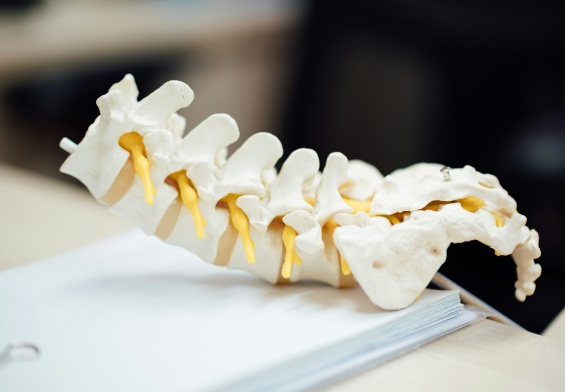Originally posted on: https://digestley.com/chronic-pain-from-sciatica-and-pinched-nerves/
Living with chronic pain, especially from conditions like sciatica and pinched nerves, is not just a physical challenge. It’s an emotional and mental battle that affects every aspect of one’s life. The relentless discomfort can lead to significant psychological distress, impacting mental health and overall quality of life. Understanding the emotional impact of chronic pain and employing effective coping strategies are crucial steps toward managing this complex condition and fostering resilience.
The Emotional Toll of Chronic Pain
Chronic pain from sciatica and pinched nerves is more than just physical discomfort; it’s an experience that can lead to profound emotional and psychological effects. Individuals often face depression, anxiety, and stress as they navigate the uncertainties of their condition. The constant pain can trigger feelings of isolation, fear, and frustration, contributing to a cycle of emotional distress that exacerbates physical symptoms.
Depression and anxiety are common among those living with chronic pain. The persistent nature of sciatica and nerve pain can diminish hope for relief, leading to despair and a sense of helplessness. This emotional burden can intensify the perception of pain, creating a vicious cycle that is hard to break.
Moreover, chronic pain can lead to significant lifestyle changes and limitations, contributing to feelings of isolation and disability. The inability to participate in social activities, work, or even complete daily tasks can foster a sense of loneliness and disconnection from others. Fear of further injury or pain exacerbation may also prevent individuals from engaging in activities they once enjoyed, further isolating them from their support networks.
Coping Strategies for Managing the Emotional Impact of Chronic Pain
Managing the emotional impact of chronic pain requires a multifaceted approach that addresses both the physical and psychological aspects of the condition. Here are several strategies that can help:
- Pain Management Techniques: Effective pain management is the cornerstone of coping with sciatica and pinched nerves. This may include medication, physical therapy, exercise, and alternative therapies such as acupuncture or massage. Tailoring pain management strategies to fit individual needs can significantly reduce discomfort and improve quality of life.
- Mental Health Support: Seeking support from a mental health professional can be invaluable in addressing the psychological effects of chronic pain. Therapy, particularly cognitive-behavioral therapy (CBT), can help individuals develop coping mechanisms to manage stress, anxiety, and depression associated with their condition.
- Support Groups: Joining a support group for chronic pain sufferers can provide a sense of community and understanding. Sharing experiences and coping strategies with others who face similar challenges can reduce feelings of isolation and foster a supportive environment for healing.
- Mindfulness and Relaxation Techniques: Practices such as mindfulness, meditation, and deep-breathing exercises can help reduce stress and improve emotional well-being. These techniques encourage a focus on the present moment, helping individuals manage pain and emotional distress more effectively.
- Exercise and Physical Activity: Regular, gentle exercise can improve physical strength, flexibility, and mood. Activities such as walking, swimming, or yoga can be particularly beneficial for those with sciatica and pinched nerves, helping to reduce pain and enhance mental health.
- Quality Sleep and Nutrition: Adequate sleep and a balanced diet are essential for managing chronic pain and supporting mental health. Good sleep hygiene and nutritious foods can help reduce inflammation, improve energy levels, and enhance overall well-being.
- Self-Care and Acceptance: Practicing self-care is crucial for managing chronic pain. This includes setting realistic expectations, acknowledging limitations, and focusing on activities that bring joy and satisfaction. Acceptance of the condition can also lead to a more positive outlook and a greater sense of control over one’s life.
- Positive Thinking and Resilience: Cultivating a positive mindset and resilience can significantly impact how individuals cope with chronic pain. Focusing on strengths, celebrating small victories, and maintaining hope can foster a sense of empowerment and determination to overcome challenges.
Building Resilience in the Face of Chronic Pain
Resilience is the ability to adapt and bounce back in the face of adversity. For those living with chronic pain from sciatica and pinched nerves, building resilience involves developing a toolkit of coping strategies, seeking support, and maintaining a hopeful outlook. It’s about recognizing that, while the pain may be a part of life, it doesn’t define one’s entire existence.
Embracing Hope and Resilience: Navigating the Path Forward with Chronic Pain
The journey through chronic pain is deeply personal and fraught with challenges. Yet, with the right coping strategies and support, individuals can manage the emotional impact of their condition, improve their quality of life, and find a path to resilience and well-being. Remember, you are not alone in this journey. By seeking help, connecting with others, and employing effective coping mechanisms, you can navigate the complexities of living with chronic pain and lead a fulfilling life.
Resources:
- Pinched nerve – Symptoms and causes | Mayo Clinic
- Sciatica – Symptoms and Causes | Penn Medicine



